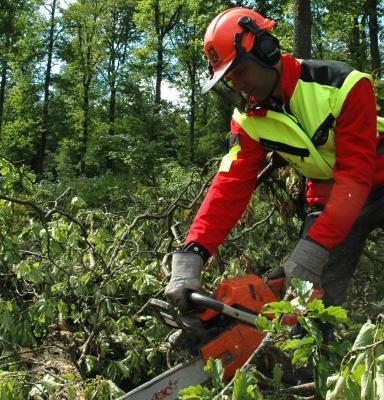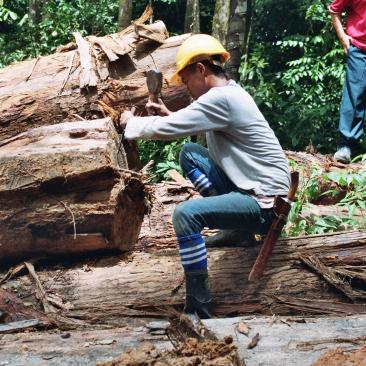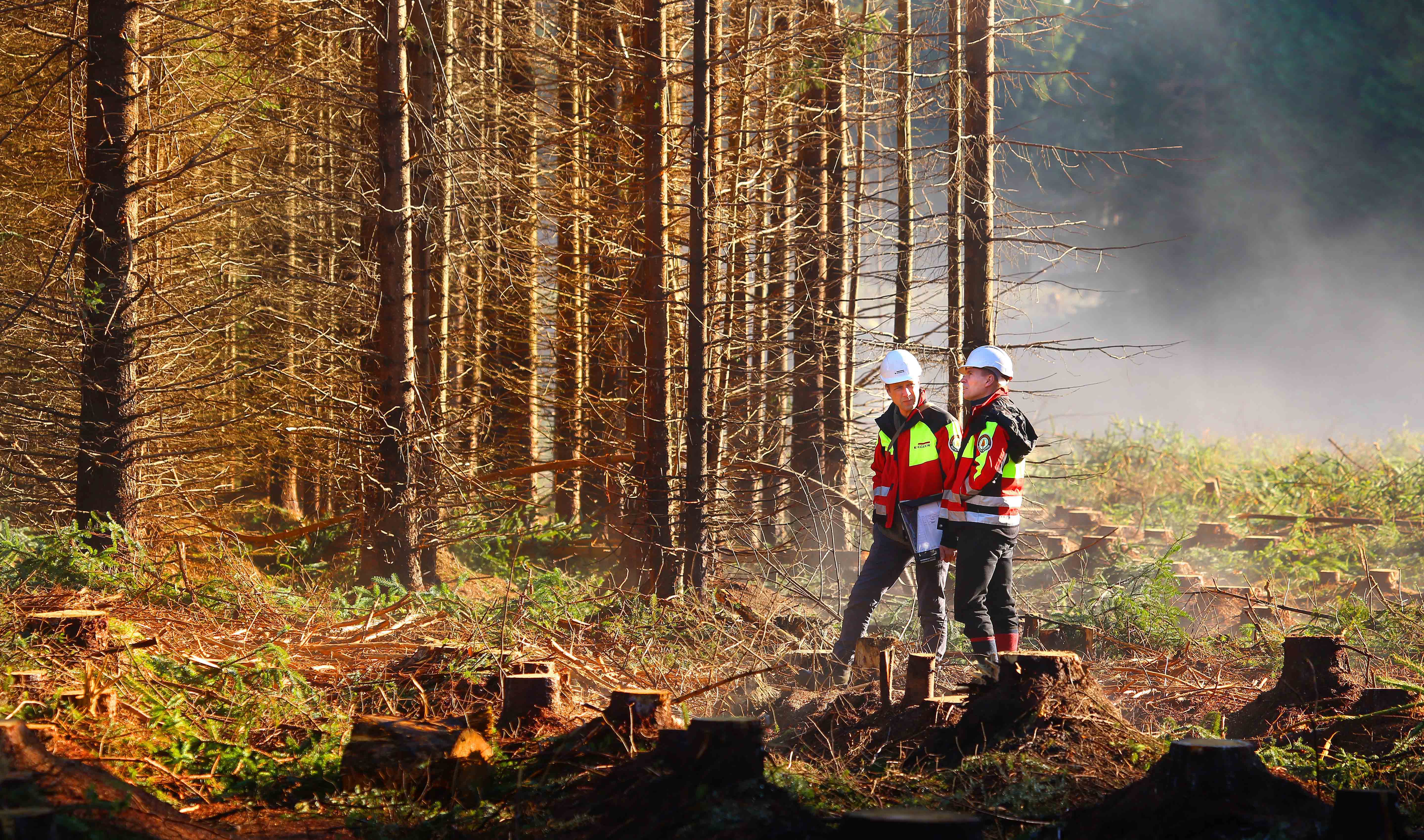
Workers’ Rights and Employment Conditions
How many of us spare a thought for those who actually work in our woodlands? As well as seeking social benefits for local communities, responsible forest management must also be beneficial for workers.
A great deal of forestry work is inherently dangerous, even in countries with a sound health and safety culture. In some jurisdictions there are risks of abuses of workers including forced labour, child labour, discrimination and poor pay. For these reasons, a priority for FSC is that certification provides meaningful protection for workers. This is reflected in the second of FSC’s Principles, which is dedicated to workers’ rights and employment conditions, and requires certificate holders to ‘maintain or enhance the social and economic wellbeing of workers’.
Version 5 of the Principles and Criteria increased the prominence of the fundamental rights identified in International Labour Organization (ILO) Core Labour Conventions, which cover forced labour, child labour, discrimination, equal remuneration, freedom of association and collective bargaining.
These and other issues are covered within the six Criteria under Principle 2:

-
Criterion 2.1
Upholding the principles and rights at work as defined in the ILO Declaration on Fundamental Principles and Rights at Work (1998) based on the eight ILO Core Labour Conventions.
-
Criterion 2.2
Promoting gender equality.
-
Criterion 2.3
Implementing health and safety practices to protect workers.
-
Criterion 2.4
Paying wages that meet or exceed minimum forest industry standards or living wages.
-
Criterion 2.5
Demonstrating that workers have job-specific training and supervision.
-
Criterion 2.6
Engaging with workers to have mechanisms for resolving grievances and for providing fair compensation to workers for loss or damage to property, occupational diseases, or occupational injuries sustained while working.
(For the full text of each Criterion, see the Principles and Criteria.)
For FSC Forest Management certificate holders, compliance with these requirements is assessed by independent certification bodies using the set of indicators adapted to national, regional or local conditions in the applicable approved forest stewardship standard.
What does this mean in the UK?
Indicators adapted to the UK context are contained in our national forest stewardship standard, familiar to most forest managers as the UK Woodland Assurance Standard, or UKWAS.
In relative terms, workers’ rights are not a contentious issue in the UK forestry sector. The UK has ratified all eight of the ILO Core Labour Conventions, and their requirements are incorporated into UK legislation. As such, our indicators under Criterion 2.1 concentrate on demonstrating compliance with UK workers’ rights legislation, supplemented by specific requirements on employee associations and negotiating terms and conditions. However, in 2018 FSC introduced a new set of more detailed International Generic Indicators addressing the ILO Core Conventions; when our standard is revised, we will need to consider whether these are more appropriate for addressing labour issues in the UK.

The UK forest industry has actively driven improvements in health and safety management through the establishment of the Forest Industry Safety Accord (FISA) in 2012 and the development of best practice guidance. Indicators under Criterion 2.3 reference both national legislation and FISA guidance:
- 2.3.1 There shall be:
- Compliance with health and safety legislation
- Conformance with associated codes of practice
- Conformance with FISA guidance. [UKWAS 5.4.1(a)]
Even with a high-level of commitment and scrutiny on health and safety, the additional value of FSC certification is the extra level of reassurance an independent auditor can provide by highlighting any areas of non-compliance in health and safety practices. By meeting the Criteria under Principle 2, certificate holders are encouraged that they are maintaining a high level of standards.
- Stuart Wilkie, Environment and Certification Manager, Scottish Woodlands
Version 4 of UKWAS saw the first explicit reference to equality legislation – while Criterion 2.2 focuses on gender equality, UK legislation does of course cover other forms of discrimination including age, race and religion. This is an important step but, especially given fears around the unequal effects of the pandemic, is there more that certification can do to ensure equality in the forestry workplace?
FSC is strongly committed to empowering workers. This means ensuring that there are no barriers to forming employee associations, allowing collective bargaining, and having appropriate grievance resolution mechanisms in place:
- Indicator 2.1.2 Workers shall not be deterred from joining a trade union or employee association. [UKWAS 5.6.1(b)]
- Indicator 2.6.1 Direct employees shall be permitted to negotiate terms and conditions, including grievance procedures, collectively should they so wish. [UKWAS 5.6.1(c)]
- Indicator 2.6.2 Workers shall have recourse to mechanisms for resolving grievances which meet the requirements of statutory codes of practice. [UKWAS 5.6.1(d)]
Achieving this in practice is not always straightforward, however.
We recognise that not all forest workers will be in the same position to negotiate their conditions, especially in a sector like forestry which relies heavily on contractors and sub-contractors.
We welcome engagement in the UKWAS review and revision process from any and all workers – whether direct employees, contractors, sub-contractors or volunteers – to ensure that their distinct needs are represented in the most effective way possible in the next version of the standard.
- Dr Owen Davies, FSC UK Forest Standards Manager.
